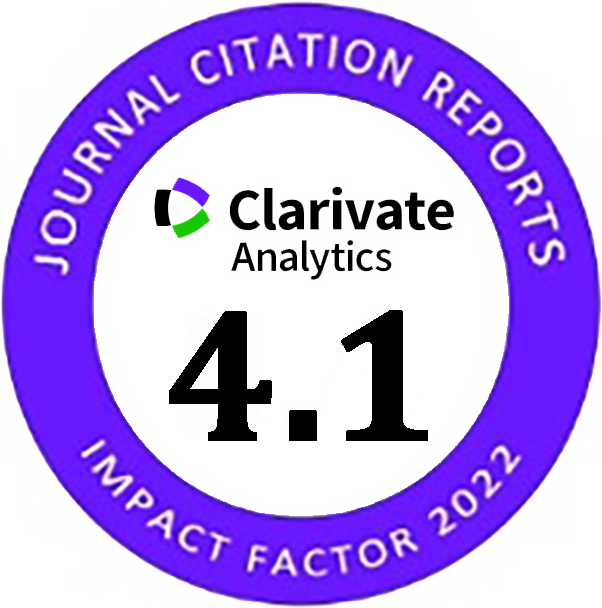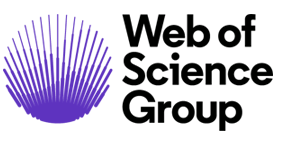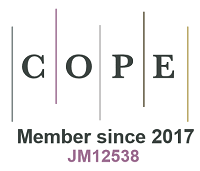Integration of Artificial Intelligence Applications and Knowledge Management Processes for Construction Projects Management
Abstract
Doi: 10.28991/CEJ-2024-010-03-06
Full Text: PDF
Keywords
References
Travis, M. L., Aruldoss, A., Kowalski, K. B., & Parayitam, S. (2023). The effect of knowledge conversion on innovation and performance: A multi-layered moderated-mediation model. Knowledge and Process Management, 30(4), 409–433. doi:10.1002/kpm.1748.
Tiwari, S. P. (2022). Knowledge Enhancement and Mobile Technology: Improving Effectiveness and Efficiency. International Journal of Social Science Research and Review, 5(7), 127–134. doi:10.47814/ijssrr.v5i7.338.
Ahmad, K., Iqbal, W., El-Hassan, A., Qadir, J., Benhaddou, D., Ayyash, M., & Al-Fuqaha, A. (2024). Data-Driven Artificial Intelligence in Education: A Comprehensive Review. IEEE Transactions on Learning Technologies, 17, 12–31. doi:10.1109/TLT.2023.3314610.
Maphosa, V., & Maphosa, M. (2022). AI In Project Management Research: A Bibliometric Analysis”. Journal of Theoretical and Applied Information Technology, 100(16), 5000–5012. doi:10.5281/zenodo.7134074.
Anumba, C., & Khallaf, R. (2022). Use of Artificial Intelligence to Improve Knowledge Management in Construction. IOP Conference Series: Earth and Environmental Science, 1101(3), 032004. doi:10.1088/1755-1315/1101/3/032004.
Igbinovia, M. O., & Ikenwe, I. J. (2018). Knowledge management: processes and systems. Information Impact: Journal of Information and Knowledge Management, 8(3), 26. doi:10.4314/iijikm.v8i3.3
Ramaj, B. Z., & Pjero, E. (2023). The Implementation of Accounting Information Systems for its Role in Marketing and Management Processes. European Journal of Marketing and Economics, 6(1), 28–38. doi:10.2478/ejme-2023-0003.
Karki, S., & Hadikusumo, B. (2023). Machine learning for the identification of competent project managers for construction projects in Nepal. Construction Innovation, 23(1), 1–18. doi:10.1108/CI-08-2020-0139.
Jarrahi, M. H., Askay, D., Eshraghi, A., & Smith, P. (2023). Artificial intelligence and knowledge management: A partnership between human and AI. Business Horizons, 66(1), 87–99. doi:10.1016/j.bushor.2022.03.002.
Rane, N. (2023). Integrating Building Information Modelling (BIM) and Artificial Intelligence (AI) for Smart Construction Schedule, Cost, Quality, and Safety Management: Challenges and Opportunities. SSRN Electronic Journal, 1-20. doi:10.2139/ssrn.4616055.
Nanjundeswaraswamy, T., & Swamy, D. (2022). Knowledge management processes and organizational culture in the higher educational technical institutions. Journal of Economic and Administrative Sciences, 38(2), 270–286. doi:10.1108/jeas-07-2020-0134.
Lam, L., Nguyen, P., Le, N., & Tran, K. (2021). The relation among organizational culture, knowledge management, and innovation capability: Its implication for open innovation. Journal of Open Innovation: Technology, Market, and Complexity, 7(1), 1–16. doi:10.3390/joitmc7010066.
Hsu, H. C., Chang, S., Chen, C. C., & Wu, I. C. (2020). Knowledge-based system for resolving design clashes in building information models. Automation in Construction, 110. doi:10.1016/j.autcon.2019.103001.
Ugwu, C. I., & Ekere, J. N. (2019). Knowledge management for improving services in federal university libraries in Nigeria. Journal of Librarianship and Information Science, 51(2), 356–369. doi:10.1177/0961000617742446.
Abubakar, A. M., Elrehail, H., Alatailat, M. A., & Elçi, A. (2019). Knowledge management, decision-making style and organizational performance. Journal of Innovation and Knowledge, 4(2), 104–114. doi:10.1016/j.jik.2017.07.003.
Alavi, M., & Leidner, D. E. (2001). Review: Knowledge Management and Knowledge Management Systems: Conceptual Foundations and Research Issues. MIS Quarterly, 25(1), 107. doi:10.2307/3250961.
Bem, R. M. de, & Coelho, CCSR. (2013). Applications of knowledge management in the area of Librarianship and Information Science. Brazilian Journal of Information Science: Research Trends, 7(1), 69–97. doi:10.36311/1981-1640.2013.v7n1.06.p67.
Galgotia, D., & Lakshmi, N. (2022). Implementation of Knowledge Management in Higher Education: A Comparative Study of Private and Government Universities in India and Abroad. Frontiers in Psychology, 13. doi:10.3389/fpsyg.2022.944153.
Galgotia, D., & Lakshmi, N. (2022). Implementation of Knowledge Management in Higher Education: A Comparative Study of Private and Government Universities in India and Abroad. Frontiers in Psychology, 13. doi:10.3389/fpsyg.2022.944153.
Tiwari, S. P. (2022). Knowledge Management Strategies and Emerging Technologies - An Overview of The Underpinning Concepts. International Journal of Innovative Technologies in Economy, 1(37), 1-3. doi:10.31435/rsglobal_ijite/30032022/7791.
Al-Hawamdeh, M. M., & Alshaer, S. A. (2022). Artificial Intelligence Applications as a Modern Trend to Achieve Organizational Innovation in Jordanian Commercial Banks. The Journal of Asian Finance, Economics and Business, 9(3), 257-263.
Bahroun, Z., Tanash, M., As’ad, R., & Alnajar, M. (2023). Artificial Intelligence Applications in Project Scheduling: a Systematic Review, Bibliometric Analysis, and Prospects for Future Research. Management Systems in Production Engineering, 31(2), 144–161. doi:10.2478/mspe-2023-0017.
Svetlova, E. (2022). AI meets narratives: the state and future of research on expectation formation in economics and sociology. Socio-Economic Review, 20(2), 841–861. doi:10.1093/ser/mwab033.
Emad, A., Naimi, S., Altaie, M. R. (2023). Artificial intelligence based statistical process control for monitoring and quality control of water resources: a complete digital solution. International Journal of Intelligent Systems and Applications in Engineering, 11(5s), 314-324.
Narayanan, V. K. (2019). Using institutional knowledge to answer puzzling questions about novel challenges and opportunities. Strategy and Leadership, 47(6), 15–23. doi:10.1108/SL-08-2019-0116.
Nabizadeh R., H., & Nabizadeh, A. H. (2023). Towards human-centered artificial intelligence (AI) in architecture, engineering, and construction (AEC) industry. Computers in Human Behavior Reports, 11(8), 100319. doi:10.1016/j.chbr.2023.100319.
Alghamdi, S. E. K., & Al-dirman, F. (2022). Knowledge Management Applications Based on Artificial Intelligence: A Systematic Review. International Transaction Journal of Engineering, Management, & Applied Sciences & Technologies, 12(13), 12A13O, 1-16. doi:10.14456/ITJEMAST.2021.267.
Ahmed, G. A., & Altaie, M. R. (2021). Investigation the Opportunity of BIM with Agile Management Approach in Iraqi Construction Projects. E3S Web of Conferences, 318, 02001. doi:10.1051/e3sconf/202131802001.
Khameesa, A. S., & Altaay, M. R. (2022). Evaluating the Efficiency of Finance Methods in Residential Complex Projects in Iraq. Engineering, Technology and Applied Science Research, 12(1), 8080–8084. doi:10.48084/etasr.4663.
Altaie, M. R., Muhsin, I. F., & Dishar, M. M. (2023). Managing the Utilization of Preventive Measures for Fire Resistance in the Hospitals. Civil and Environmental Engineering, 19(2), 520–531. doi:10.2478/cee-2023-0047.
Kadhom, A., & Altaie, M. (2023). Impact of project delivery method on geotechnical site conditions for implementing water treatment plants in Iraq. AIP Conference Proceedings, 2651(1), 20018. doi:10.1063/5.0106524.
Altaie, M. R., Dishar, M. M., & Muhsin, I. F. (2023). Fundamental Challenges and Management Opportunities in Post Disaster Reconstruction Project. Civil Engineering Journal, 9(9), 2161–2174. doi:10.28991/cej-2023-09-09-05.
Obead, K. R., & Wali, M. R. (2020). Developing Systems Engineering for Sustainable Infrastructure Projects. IOP Conference Series: Materials Science and Engineering, 901(1), 012026. doi:10.1088/1757-899x/901/1/012026.
Khamees, A. S., & Altaay, M. R. (2022). Optimizing Methods of Funding Residential Complexes Projects. International Journal of Intelligent Systems and Applications in Engineering, 10(3), 57-63.
Tsukuma, H., & Kubokawa, T. (2020). Multivariate Linear Model and Group Invariance. Shrinkage Estimation for Mean and Covariance Matrices, 27–33. doi:10.1007/978-981-15-1596-5_4.
Saleh, A. K. M. E., & Shalabh. (2014). A ridge regression estimation approach to the measurement error model. Journal of Multivariate Analysis, 123, 68–84. doi:10.1016/j.jmva.2013.08.014.
DOI: 10.28991/CEJ-2024-010-03-06
Refbacks
- There are currently no refbacks.
Copyright (c) 2024 Meervat razaq altaie, Marwa M. Dishar

This work is licensed under a Creative Commons Attribution 4.0 International License.







